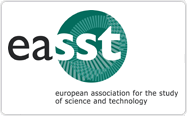Call for Papers: Special Issue on Expertise and Its Tensions
Contemporary societies are permeated by, and depend on, many kinds of expertise. Furthermore, expertise is commonly contested in various domains, such as environment, health, medicine and economics. Debates on expertise may involve struggles over ontologies or epistemic authority. These struggles can be about relations between lay and expert knowledges, but they might also emerge among scientific experts, or between distinct forms of expertise and ways of knowing. Furthermore, inter- or multidisciplinary endeavors create tensions as scientific experts from various fields need to fit together their approaches and unspoken or tacit aspects of their expertise.
Articles can relate to any aspect of expertise, targeting, for example, any of the three pre-established topic groups: 1) expansion of expertise in the public domain, 2) multidisciplinary expertise and its tensions, 3) experts, politics and policy.
Proposals are welcome on (but not restricted to) the following topics:
- Emergence of multiple expertises around specific phenomena
- Multidisciplinary expertise and tacit knowledge
- Expertise and wicked problems
- Expertise, law and regulation
- Socio-material aspects of expertise
- The place of expertise in social services
- Trust in science and/or think tanks
- Science-policy dynamics
- Expertise and the Triple helix
- Expansion of expertise in the public domain
- Social media and expertise
- Personal values, stances, and expert knowledge
- Expertise concerning risk
- Experience-based expertise
- Politically and economically motivated dissent in science
- Public questioning of medical expertise
- NGOs as policy experts
- Participatory expertise
- Contingency of the boundaries of public expertise
- How information systems and databases affect medical expertise
- Big data and expertise
- Tensions in multi-disciplinary expertise
- The interfaces of expertise
- Semantic difference and loss of context in multidisciplinary scientific work
- Emotional tensions in multi-, inter-, and trans-disciplinary interaction
- Multiple ontologies and professional languages
- Scientific misconduct and its relation to expertise
- Total quality management of expertise
- The efficiency of expertise
The guest-editors of this special issue of Science and Technology Studies are: Steven Yearley, Maria Åkerman, Otto Auranen, Harley Bergroth, Ismo Kantola, Sampsa Saikkonen, Jaakko Taipale.
Papers to be submitted should not be published or under review elsewhere. All submissions will be peer-reviewed according to Science & Technology Studies’ guidelines and procedures. For further manuscript guidelines, please see ‘manuscript submissions’ on the Science & Technology Studies website (www.sciencetechnologystudies.org).
Deadline for manuscript submissions is 15th of February 2017.
For further information, please contact Ismo Kantola (ikantola@utu.fi). It is highly recommendable for anyone considering submission to this special issue to send an abstract as soon as possible by e-mail to the editors via Ismo Kantola (ikantola@utu.fi).





